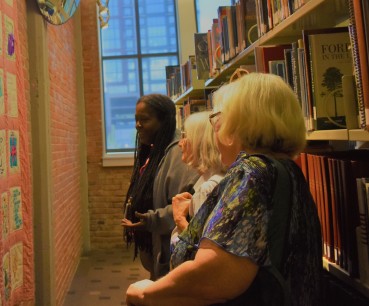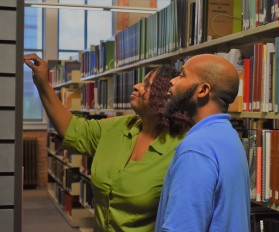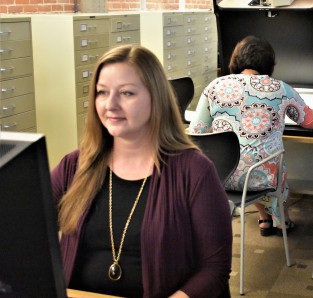calsfoundation@cals.org
Starting Your Family History Research? Get the Basics Here
Who am I? How did I end up here?
A fascination with family history sometimes begins with simple personal curiosity. Most people don’t know their complete family trees, and a mysterious past naturally leads to questions: Were my ancestors rich or poor? Did they overcome hardship? Did a certain talent or health problem run in my family?
Genealogy provides answers to questions of identity
 Our family histories can explain much about why we live in our current geographical regions, and our ancestors’ lives still influence our current values and beliefs. The cultures that formed previous generations of our family still leave deep imprints on our lives.
Our family histories can explain much about why we live in our current geographical regions, and our ancestors’ lives still influence our current values and beliefs. The cultures that formed previous generations of our family still leave deep imprints on our lives.
Once we have questions about our past that we want to answer, where do we start? With so many online and print sources available, knowing how to find reliable information can feel like finding the proverbial needle in the haystack.
Free introductory how-to sessions at the Butler Center
The Butler Center offers free, expert help every month from our resident genealogist, Rhonda Stewart. In her small group presentation, “Finding Family Facts,” Rhonda introduces new researchers to the process of finding reliable information and to the many resources at the Butler Center.
A complex legacy of migration has brought people from all over the globe to the USA. Some Americans know that their families have only been in this country for two or three generations, and so they must trace their ancestry back across oceans.
 Mary H., who came to a recent “Finding Family Facts” session, was in exactly that position, having recent immigration in her family history.
Mary H., who came to a recent “Finding Family Facts” session, was in exactly that position, having recent immigration in her family history.
“I had my DNA tested,” Mary said. “And the DNA confirmed our main family stories, which was really good because some of those stories conflicted! We didn’t know if we were Italian or French, but we’re Italian.”
In response to Mary’s specific research needs, Rhonda was able to recommend resources such as Social Security applications that are helpful for seeking ancestors who are recent immigrants to the USA.
Years of experience equip Stewart with many tips for seekers
Rhonda Stewart has been working in genealogy for many years, and has a talent for being able to get through “brick walls” when a trail of information seems to vanish.
“My mother’s sister said that our family stories weren’t true, so I set out to prove her wrong,” Rhonda said with a smile. “And here I am, thirteen years later, working in genealogy.”
 The work of family research is often creative detective work, which is why many people fall in love with the process.
The work of family research is often creative detective work, which is why many people fall in love with the process.
“Sometimes, your relative’s friends will really tell you the truth after your relative passes,” Rhonda said. “Have a cup of tea with one of those friends and say, ‘tell me what Mamaw was really like–you know you used to get up to trouble back in the day!’ You may be surprised at what you learn.”
The Butler Center offers extensive local history resources for those who may have roots in Arkansas. The research collection also contains print resources that address wider genealogy and history questions, as well as public computers and microfilm readers. A tour of the research room is part of “Finding Family Facts.”
“Finding Family Facts” takes place on the second Monday of each month from 3:30-5:00pm. The next session will occur on September 10 on the second floor of the Roberts Library (formerly known as the Arkansas Studies Institute) in Library Square.




